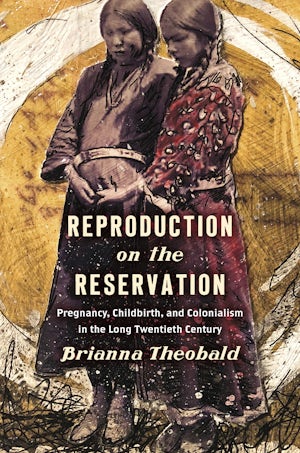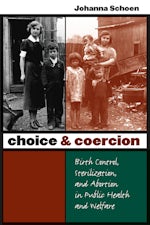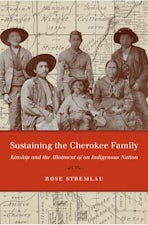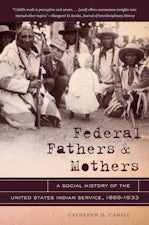Reproduction on the Reservation
Pregnancy, Childbirth, and Colonialism in the Long Twentieth Century
By Brianna Theobald
288 pp., 6.125 x 9.25, 12 halftones, 1 map, notes, bibl., index
-
Paperback ISBN: 978-1-4696-5316-7
Published: October 2019 -
E-book EPUB ISBN: 978-1-4696-5317-4
Published: August 2019 -
E-book PDF ISBN: 979-8-8908-5485-8
Published: August 2019 -
Hardcover ISBN: 978-1-4696-5315-0
Published: October 2019
Critical Indigeneities
Buy this Book
- Paperback $32.50
- Hardcover $99.00
- E-Book $22.99
For Professors:
Free E-Exam Copies
Awards & distinctions
2020 John C. Ewers Award, Western History Association
2019 Armitage-Jameson Prize, Coalition for Western Women's History
2020 Erminie Wheeler-Voegelin Book Award, American Society for Ethnohistory
A 2020 Choice Outstanding Academic Title
By looking deeply at one tribal nation over more than a century, Theobald offers an especially rich analysis of how Indigenous women experienced pregnancy and motherhood under evolving federal Indian policy. At the heart of this history are the Crow women who displayed creativity and fortitude in struggling for reproductive self-determination.
About the Author
Brianna Theobald is assistant professor of history at the University of Rochester.
For more information about Brianna Theobald, visit
the
Author
Page.
Reviews
"Theobald's use of oral histories and interviews with Native women makes for an intimate, affecting exploration of resilience under assimilationist pressures." —Library Journal
“Theobald has no trouble drawing a strong through-line in the book that illustrates a continuity of struggle for reproductive rights in Indigenous communities.” —Nursing Clio
“This book is extremely important for multiple academic disciplines, especially for those interested in American history and reproductive politics, and is essential for those wanting to expand their knowledge of American Indian women’s experiences, both historically and currently.” —Choice
“An important addition to the growing body of literature that explores reproductive justice issues among Indigenous people. . . . This book is suited for both experienced scholars in these areas and members of the reading public who desire a greater comprehension of the reproductive experiences of Indigenous women in the United States during the 20th century.” —Affilia: Journal of Women and Social Work
"Centers the range of experiences of Native mothers during pregnancy, childbirth, and childrearing. . . . By weaving a birth story into the recent protests against environmental injustices and broken treaties, Theobald demonstrates that maternal health and reproductive control mechanisms have been central to colonial policies." —Women's Review of Books
"A model for future studies. . . . This book will find a wide readership among a range of social science and humanities disciplines. I hope it will also be read by health professionals and by students and faculty in public health." —Journal of American History




